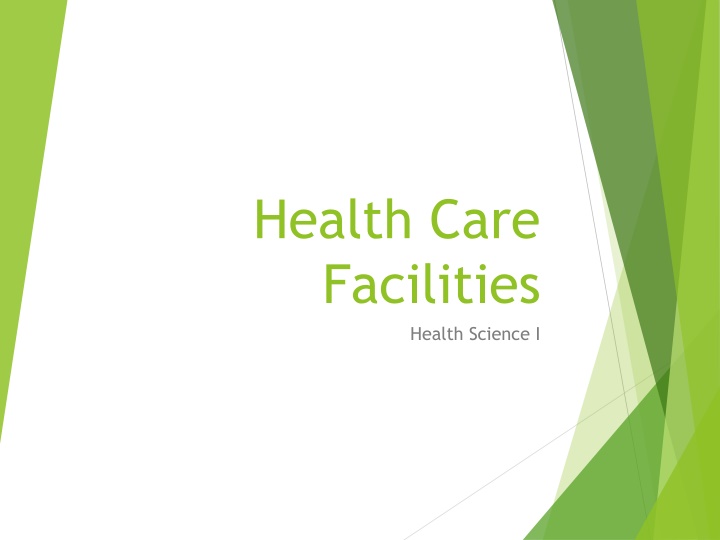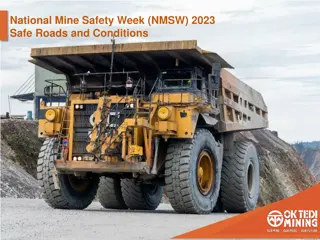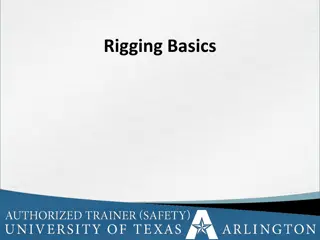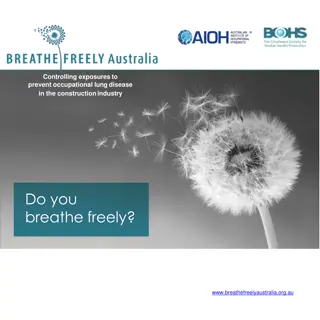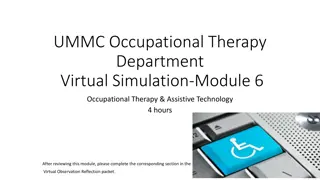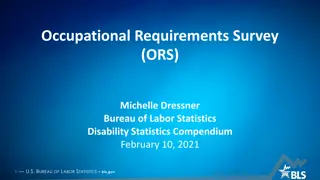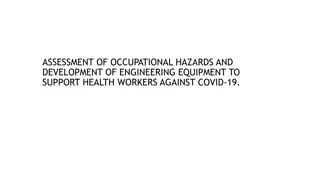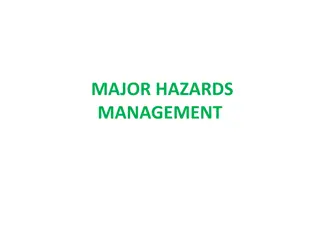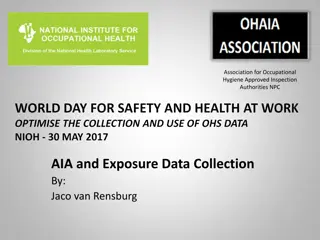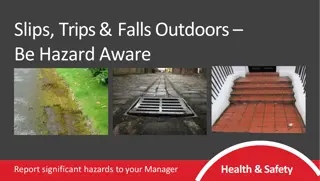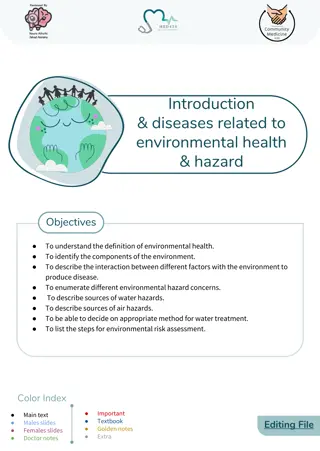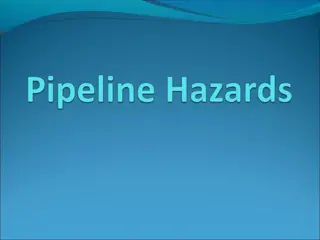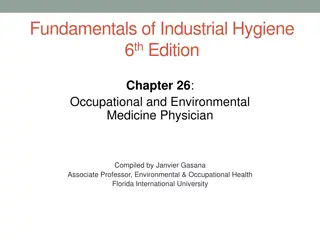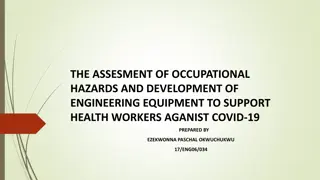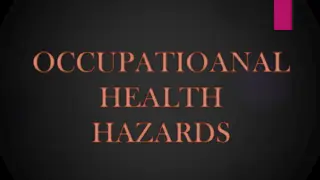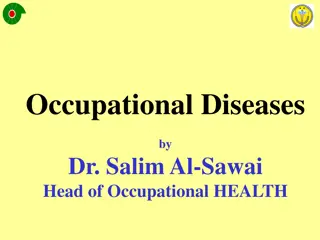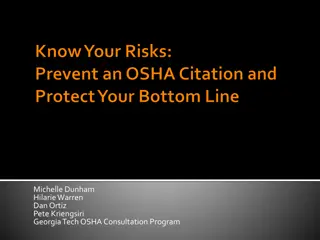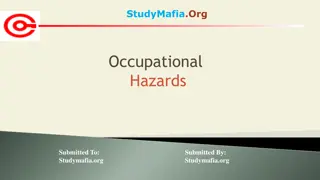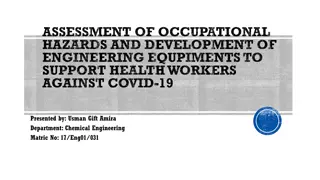Assessment of Occupational Hazards & Development of Engineering Equipment for Health Workers Against COVID-19
This article discusses occupational hazards faced by health workers during the COVID-19 pandemic and the development of engineering equipment to support them. It covers the impact of the virus, transmission methods, common symptoms, preventive measures, and the global response to the outbreak.
Download Presentation

Please find below an Image/Link to download the presentation.
The content on the website is provided AS IS for your information and personal use only. It may not be sold, licensed, or shared on other websites without obtaining consent from the author.If you encounter any issues during the download, it is possible that the publisher has removed the file from their server.
You are allowed to download the files provided on this website for personal or commercial use, subject to the condition that they are used lawfully. All files are the property of their respective owners.
The content on the website is provided AS IS for your information and personal use only. It may not be sold, licensed, or shared on other websites without obtaining consent from the author.
E N D
Presentation Transcript
Health Care Facilities Health Science I
Types of Health Care Facilities- Hospitals One of the major types of health care facilities They vary in size and types of services provided.
Types of Hospitals General Hospitals: treat a wide range of conditions and age groups. Usually provide diagnostic, medical, surgical, and emergency care. Specialty Hospitals: provide care for special conditions and age groups. Burn hospitals, oncology (cancer) hospitals, or pediatric (children s) hospitals. Government Hospitals: operated by federal, state, and local government and provide care for government service personnel and their dependents. University or College Medical Center: provides hospital services for research and education.
Turn and talk Your patient is a homeless man brought in by paramedics suffering from hypothermia. After interviewing the gentleman you find he is a veteran suffering with a history of alcoholism and drug abuse. Where should the patient be sent in order to receive proper care? Write down your response and be prepared to share two ideas
Long Term Care Facilities Provide assistance and care for elderly patients, usually called residents. Nursing Homes: also known as residential care facilities and are designed to care to individuals that can no longer care for themselves. Extended Care Facilities: provide skilled nursing care and rehabilitative care to patients before they return home. Assisted Living Facilities: provide services like meals, housekeeping, transportation, ect.. to individuals who can care for themselves.
Medical Offices Medical Offices provide many different types of medical services to all ages. Dental Offices provide general dental services to all age groups or specialized care to certain age groups. Orthodontists corrective braces for teeth Cosmetic Surgeons elective procedures to improve appearance General Surgeons Perform different types of surgeries
Clinics Also called satellite clinics and are health care facilities found within many types of health care organizations. Surgical clinics Urgent care clinics Rehabilitation clinics Specialty clinics Outpatient clinics Health department clinics Medical center clinics
Home Health Agencies that are designed to provide care in a patient s home. These services are frequently used by the elderly or disabled.
Mental Health Facilities Treat patients with mental health disorders and diseases. Examples: Psychiatric clinics or hospitals Chemical abuse treatment centers (dealing with drug and alcohol abuse) Physical abuse treatment centers (dealing with child abuse, spousal abuse, or geriatric (elderly) abuse.
